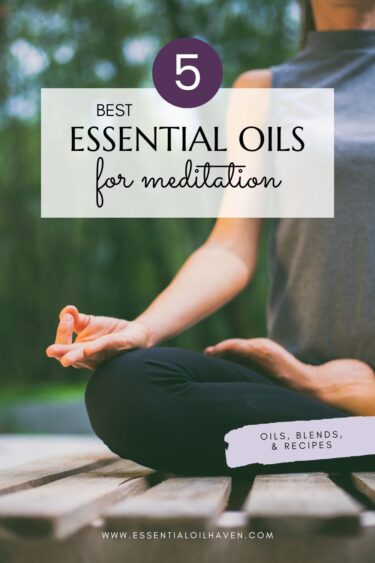 Essential oils offer a beautifully direct pathway to deepen your meditation practice by engaging the senses in a profound and calming way.
Essential oils offer a beautifully direct pathway to deepen your meditation practice by engaging the senses in a profound and calming way.
In this article, I’ll show you exactly how to combine aromatherapy and meditation – and which essential oils to choose.
Are you ready to transform your practice, and enhance your journey towards inner peace and spiritual awareness?
This post contains affiliate links, which means if you make a purchase through these links, I may receive a small commission at no extra cost to you. Read my full disclosure policy here.
Let’s dive in!
Which Essential Oils Support Meditation?
The essential oils you use during meditation will create the ambiance for you to be in. The oils will also provide particular aromatherapy benefits as part of a boost to your overall well-being.
While there are many oils available for you to choose from, let’s learn about the top 5 essential oils for meditation and how they work.
But please remember: aromatherapy is a highly personalized experience. Which is beautiful… you can tailor the oils to your emotional and spiritual needs. But it also means that it might need a little bit of experimenting. Don’t give up after if the first oil you pick didn’t work. Please… try another one.
1. Frankincense
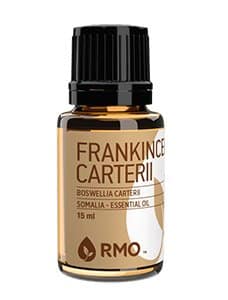
Frankincense (Boswellia carterii)
Get It Here
Frankincense has been used as an essential oil to enhance spirituality for centuries. It is one of the best essential oils for meditation!
Frankincense supports feelings of grounding, balancing and openness. It can also it can target depression and anxiety, and relieve associated symptoms.
If you’re meditating to promote relaxation and stillness, choose Frankincense (or blends that include Frankincense).
In my words… “Frankincense oil soothes the soul”.
2. Sandalwood
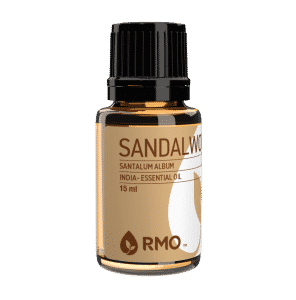
Sandalwood (Santalum Album)
Get It Here
Sandalwood essential oil promotes relaxation and calm while increasing attention and cognitive clarity.
It has a woodsy, sweet smell; it’s warm and comforting. Traditionally, sandalwood oil has been a part of religious traditions in India and other Eastern countries ¹. The sandalwood tree itself is considered holy and used for various religious ceremonies.
3. Cedarwood
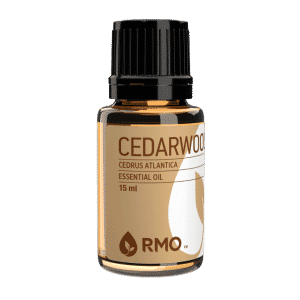
Cedarwood Oil is ca. $12 per bottle of 15 mL
Get It Here
Cedarwood is one of my favorite essential oils as it has beautifully calming effects. It is soothing to the senses and can help clear the mind.
Its aroma is woodsy, earthy with a hint of sweet.
As an additional benefit, Cedarwood also tends to be a well-liked scent by men.
4. Neroli
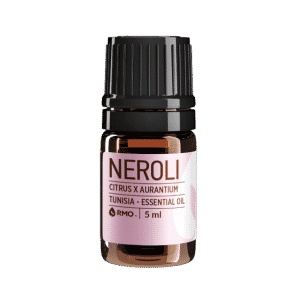
Neroli Essential Oil
Get It Here
Neroli essential oil can be an extremely spiritually transformative essential oil ². It is often used in meditation, prayer and other spiritual rituals to help promote self-love and acceptance, reduce fears, and help you achieve mindfulness.
In the body, Neroli can reduce pain and inflammation, decrease blood pressure and cortisol levels.
5. Ylang Ylang
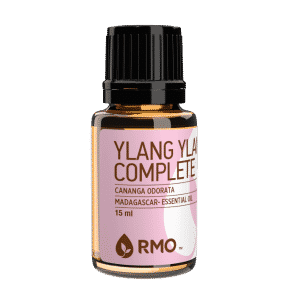
Sandalwood (Santalum Album) Essential Oil
Get It Here
Ylang Ylang essential oil can increase positive feelings and happiness, and enhance meditation by uplifting your spirits. It has a positive effect on your heart and mind, giving you feelings of euphoria and creativity.
Ylang Ylang blends well with bergamot, grapefruit, geranium, lemon, marjoram and sandalwood essential oils.
How to Use Essential Oils during Meditation
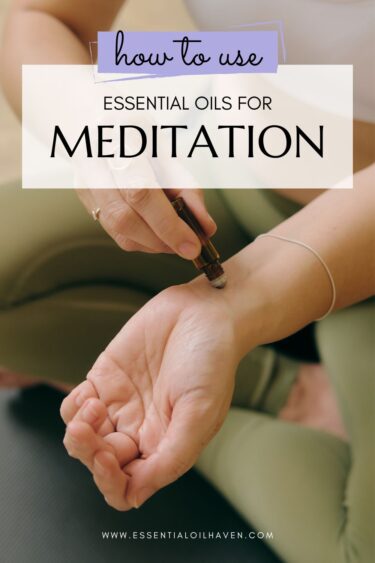
- By diffusing a few drops into the air with your favorite ultrasonic diffuser or passive diffuser;
- by wearing the oil on your skin (diluted in carrier oil); and/or
- by using diffuser jewelry that you wear close to yourself.
Which essential oils you choose to enhance your meditation practice is up to you and your personal preference.
The ones I’ve listed is a guide to get you started, but I recommend exploring your practice with aromas you feel most attracted to. Ones that lift your spirits.
Why Use Essential Oils For Meditation?
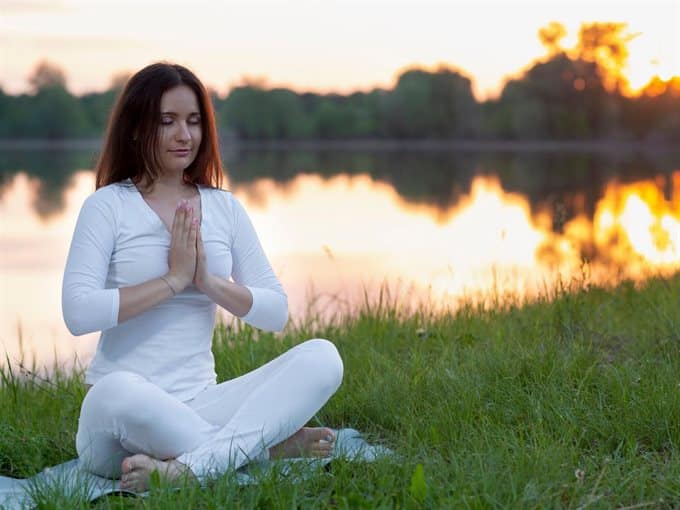
Meditation can happen anywhere. Take your essential oils outside with a passive diffuser, roll-on bottle, or diffuser jewelry.
Essential oils have been used in various religious and holistic practices for centuries. We know that essential oils help support emotional well-being.
When used during meditation, essential oils reduce distractions and pinpoint specific areas of your wellness that need more support.
The use of essential oils can help reduce stress, anxiety and depression, increase feelings of love, or improve focus and calm. Some essential oil blends are designed to tap into specific areas within our bodies to support healing and shift unhelpful thoughts or feelings into helpful self-awareness, and self-love.
Essential oils can remove emotional blocks or trigger memories. Through this, they help lead to healing and better clarity of who we are.
Final Thoughts
Using essential oils for meditation adds an extra layer of health benefits to your daily practice.
It adds a sensory dimension to your meditation routine.
Through the aromatic power of oils such as Frankincense, Cedarwood or Sandalwood, you can create a serene and uplifting environment that supports your journey towards inner peace and mindfulness.
Experiment with different oils and blends, and discover the combination(s) that resonate most deeply with your meditation goals.
Resources
¹ The Magic, History, and Folklore of Sandalwood
² According to an article by Chad Pegura, titled, ‘Using Essential Oils during Meditation’ found on www.organicaromas.com.


There is a deep connection between essential oils and mindfulness. I’ve learned a lot about using essential oils for meditation by reading your article. Thank you so much Emma.